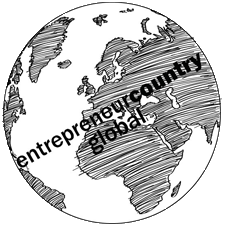What is the role of innovation in fostering sustainable mobility?
For the past century, access to relatively cheap and abundant sources of fossil fuels have been the driving force for mobility in all sectors of transportation. However the market landscape has been shifting with increased fuel costs, tighter regulations, and societal changes in the places we live and how we interact.
Innovation in both technology and business models has sought to address these changes, resulting in more efficient modes of transports and technology (such as hydrids, ship kites and winglets), as well as more sustainable modes of transport and communication.
As we continue to see societal changes and resources become increasingly limited, we will become increasingly reliant on sustainable mobility options to allow us to conduct our daily lives.
Innovation needs to occur on many fronts to ensure we keep pace with these changes. Three areas in particular must embrace innovation to overcome challenges to develop new business models and technology improvements:
1) Infrastructure
Over the past century, an infrastructure has been built to accommodate fuel driven automobiles across distances. This infrastructure is becoming increasing outdated, with a lack of funds in many regions to maintain the road or rail lines. The move away from the traditional car needs to be accommodated as infrastructure is adapted for new demands. For example, the increase in local power generation and establishment of charging stations that will be required to meet demand for electric vehicles may prove to be a challenge for companies like Tesla looking to transition the mass market to electric vehicles.
2) Vehicle and Fuel Development
Alternative fuel and power sources will continue to evolve and offer options that enable new approaches to vehicle technology. Fuel cells and more efficient batteries could become critical pieces of the sustainable mobility puzzle moving forward as the costs are driven down. However, there is no "silver bullet" solution that doesn't face it's own challenges, meaning that existing technology with increased efficiencies and lower emissions in terms of vehicles as well as quality of the fuels being produced will be required as bridge technologies. By looking to companies with long lead times, we can already see the how market impacts are impacting technology development. Boeing's launch of the 777 fuel efficient plane reflects the growing relationship that companies see between cost and performance efficiencies.
3) Local mobility
With over half the population now living in urban settings, the cost, practicallity and environmental impacts of individual transportation are becoming less attractive as the strain on local infrastructure increases. Mass transit has for centuries offered a solution to commuters and this innovation has led from trams to trains to buses. Each of these options has it's own limitations and I see continued evolution as we identify new and exciting alternatives such as expanded high speed mass transit and ride sharing as part of the solution.
As a final note, it is worth bearing in mind the critical role that regulation will play in driving the innovation. CAFE standards were a major factor in changing the fuel efficiency of cars in the US, while tax incentives and waivers for fuel efficient cars are being employed to promote electric vehicle adoption. Airlines and shipping are already entangled in discussions regarding their emissions by the EU and I see this trend will continuing. Similarly cities worldwide are imposing taxes based on emissions, which should result in greater innovation. It remains to be seen what role governments will continue to play in encouraging sustainable mobility given the financial pressures this can create, but it is almost certain that they will continue to be key players in the discussion moving forward.
- Tags: blog, entrepreneurcountry, featured, innovation, smart cities, smart cities and transportation, united kingdom
